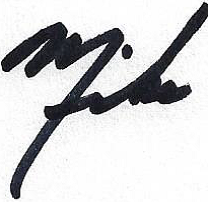The Old Testament lectionary lesson for this week, Exodus 32:1-14, has many motifs that are good fodder for a sermon. There is the delay of Moses, the creation of an idol, the worship of the idol, and the discussion between Moses and a frustrated (even angry) God. It is the last theme that I’d like to reflect on here.
Let’s take a moment and reflect on Moses’ relationship to the characters in the story, God and the people of Israel. He was exiled from Egypt to the wilderness. There, God came to him, called him, consecrated him, commissioned him, and empowered him to be an agent of deliverance. As God’s agent, Moses was tasked with bringing God’s word and liberation to the Hebrews.
Moses’ relationship with the people up to this point has been rocky at best. Remember that Moses was adopted into and raised in the royal family of Egypt. He was among the oppressors of the Hebrew people. However, he “saw” (perceived) the cruelty inflicted on the people of his roots and defended a Hebrew being beaten by an Egyptian taskmaster (actually killing the Egyptian.) The Hebrews did not accept his change of heart. When Moses returned to Egypt after his calling, everyone was excited. When the plagues came, and Pharaoh’s heart was hardened, they all became angry. After their great exodus from Egypt, as the people were trapped between an advancing Egyptian army and the Red Sea, they wished that Moses’ would have left them alone in Egypt. In the wilderness, they complained greatly about being hungry and thirsty and even wished to go back to the place of their enslavement. In this particular passage, the Hebrews not only break but shatter the first two commandments.
In the account of the golden calf and its aftermath, God seems to be fed up with the Hebrews. They have been fair-weather followers and they have not been faithful. In some sense, the plans God reveals to Moses seem too good to be true: God gets rid of a people who have been nothing but trouble for Moses, and Moses gets to be the start of the reconstituted people of God. BUT … Moses argues with God. Moses contends on behalf of the stiff-necked, complaining, whining, unfaithful people. In the end, the story says that God changed God’s mind and relented the plan to destroy the people.
In essence, Moses’ argument to God was that one (himself) was sufficient to represent the people of God. Simply finding himself in God’s good grace wasn’t enough. Moses believed that despite all their shortcomings (and there were many), the entirety of the Hebrew people belonged in God’s grace. Moses contended that all should be included.
In the Exodus story, Moses typically functions as a prophet – one who speaks God’s word to God’s people. Here, he acts as a priest. He brings the people before God. Through his faithfulness to stiff-necked, rebellious people, he becomes a catalyst for their inclusion in the people of God.
This seems like a worthy goal for all who call themselves Christians. We are called not only to proclaim but also to welcome. We are to be catalysts for God’s grace. Our work is not only in proclaiming the good news but to embody that good news and act on behalf of others. We need to be out in the world to help others discover and name the God who is already at work in their lives. Given the difficult history of the Hebrews with both God and Moses in the Exodus saga, they were still included. This seems to suggest that there are no disposable people. Everyone should have a place in God’s family. Everyone should have a place in the pew. Everyone should have a place at the table. Everyone is beloved by God.
May God bless you in your work as you seek to be catalysts of God’s grace.

